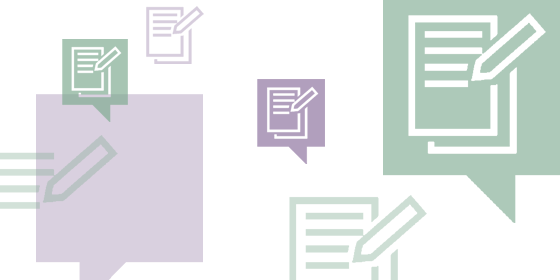Tags: Artificial Intelligence (AI)
Artificial intelligence (AI) has become an integral part of our day-to-day lives, transforming how work is being done, and shaping our future. In an increasingly AI-driven world, businesses must prioritise ethical considerations to build trust and ensure the responsible use of AI systems. In this blog post, we will explore the Institute of Business Ethics (IBE) guidance on the ethics of AI, while also delving into the principles of business ethics as a foundation for ethical decision-making using AI systems.
Business ethics is the application of ethical values to business behaviour. Ethical AI considerations enable the business to develop and/ or use trustworthy systems resulting in transparency, accountability, and fairness. Ethics in AI systems extends beyond regulatory requirements and focuses on discretionary decision-making processes and behaviours that are guided by business values. IBE has compiled a set of key principles to guide organisations in the ethical use of AI. These principles align with the broader concept of business ethics, emphasising responsibility and accountability in developing and using AI technologies.
- Purpose: Organisations should ensure that the societal implications of AI remain at the forefront. AI systems should be developed with clear objectives, aligning technology with the organisation's values and ethical considerations. Balancing business goals with ethical considerations is vital to building trust and promoting AI responsibly.
- Accountability: Organisations should ensure human oversight throughout all stages of AI systems by establishing multiple control points and designating clear responsibilities all across. Businesses should also develop principles and policies to guide the use of AI in their operations and ensure everyone adheres to those.
- Transparency: Keeping people at the centre of AI decisions is indispensable. Businesses must consider the impact of AI systems on individuals and provide clear explanations of how these systems influence outcomes. Transparency and accessibility will foster trust and enable individuals to make informed choices regarding AI interactions and utilisation.
- Fairness: While legal requirements provide a framework, ethical AI goes beyond mere compliance. IBE emphasises the need for AI frameworks to address legal and moral aspects, safeguarding the well-being of individuals and society. Using AI systems should uphold ethical principles, ensuring fairness, transparency, and accountability in its deployment.
- Safety: Organisations should assess risks associated with AI deployments, establishing safeguards to protect against bias or discrimination, and ensuring compliance with legal, regulatory, and privacy requirements, helping organisations proactively address any potential risks.
The enforceability of the principles should be governed by the ethics committee to oversee governance and manage outcomes. Establishing an ethics committee within organisations can play a pivotal role in overseeing AI systems' ethical implications. These committees are often composed of leaders across the business, as well as business ethicists, futurists, and change managers. This team works in collaboration with dedicated experts to ensure that ethical principles underpin governance, processes, and technology. Regular monitoring and evaluation are essential to mitigate risks, manage outcomes and ensure AI systems align with ethical standards. Steering the outcomes using ethical AI principles will ensure innovation meets accountability.
Embracing collaboration and open innovation in the field of AI ethics can accelerate the development of ethical AI systems. Sharing best practices, insights, and challenges among AI developers, researchers, and policymakers can foster the creation of common standards that prioritise ethical considerations, currently lacking in the industry.
If you are a leader of an organisation, here are steps to get you started:
- Review the IBE Business Ethics guidelines with your leadership team. Include Legal and compliance and establish “ground rules” that must be adhered to.
- Form a diverse and cross-functional ethics committee with people representing the entire business, from line workers to middle management, and all departments. Keep the team small enough to be manageable but still representative. Consider adding a customer or shareholder.
- Have this team compare the IBE guidelines with your company’s mission, vision, values, and current ethical guidelines and prepare change recommendations to policy, procedures, controls, and ways of working. Get buy-in from executive management, HR, Legal and Compliance.
- Have the committee circulate their recommendations to the organisation and hold workshops where employees can give feedback and ask questions. This creates support and buy-in amongst staff.
- Incorporate suggestions and have them reviewed by legal and compliance before circulating the final draft.
- Realign policies, procedures, roles, responsibilities, systems, decision-making, ways of working to adhere to your company’s mission.
The IBE's guidance on the ethics of AI provides a valuable roadmap, aligning with the principles of business ethics. By embracing purpose-driven AI, fostering transparency, accountability, and fairness, mitigating risks, and promoting collaboration, organisations can navigate the complex landscape of AI ethically. By keeping humans at the centre of AI decisions and following ethical frameworks, businesses can leverage AI's potential for societal progress while upholding the values and principles that underpin responsible business behaviour.
Download the guidance...
Author

Biren Misra
Trustee
Biren joined the IBE Board of Trustees in July 2023.
Biren is a seasoned management consultant with extensive experience in the field of technology transformation and business strategy. Throughout his years within the consulting and industry, such as Accenture, American Express, UnitedHealth Group and others, Biren has worked with companies, helping them challenge industry orthodoxies, reinvent themselves, and deliver value to customers through people and technology transformation.
Biren is passionate about creating a human-centric inclusive ecosystem with a keen focus on change management, enhancing experience and leveraging the benefits of automation, AI and other latest technology trends. Unique blend of experience across India, USA, Southeast Asia and UK, he has successfully led complex global transformation programs, placing a strong focus on digital HR, wellbeing, employee experience, automation, and analytics.
Biren has an MBA in Finance and possesses Masters in AI from Oxford University. He holds certifications in Design Thinking, Google Cloud Digital Leader, Lean Six Sigma and Emotional Intelligence.
Biren is an advocate of diversity, equity and inclusivity and authors articles on AI Ethics focusing on ensuring data representation of marginalised population within datasets to make AI to safeguard processes to deliver ethical solutions.
Biren lives in London. He is a concept artist and enjoys creative pursuits and uses photography, sculptures, and multi-medium art forms for storytelling.
Why I chose the IBE...
I firmly believe that ethical business is not just being morally right but also essential for long-term organisational success. I am driven by the desire to contribute to the advancement of AI ethics guidelines and frameworks, ensuring that technology is developed and utilised in a responsible and inclusive manner. With the IBE's important role in supporting businesses in this critical domain, I am excited to collaborate with like-minded individuals and make a positive impact on the future AI ethics.

